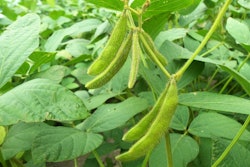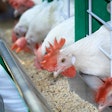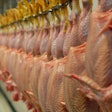
Altering a small section of chicken DNA improved resistance to avian influenza with no negative impacts on health or well-being, revealed new research from theUniversity of Edinburgh, Imperial College London and Pirbright Institute.
“Gene-editing offers a promising route towards permanent disease resistance, which could be passed down through generations, protecting poultry and reducing the risks to humans and wild birds,” Mike McGrew, the study’s principal investigator, from the University of Edinburgh’s Roslin Institute, said in a statement.
Additional gene edits would be necessary before chickens were completely protected against avian influenza, the researchers cautioned.
The discovery was published in the journal,Nature Communications.
Hijacking avian influenza replication
The researchers used a type ofgene editing called CRISPR/Cas9to modify the gene responsible for producing the protein ANP32A, which is hijacked by flu viruses to replicate during an infection.
When exposed to a normal dose of H9N2-UDL avian influenza, 9 out of 10 gene-edited birds resisted the virus. The gene-edited chickens displayed lower resistance to an artificially high dose of avian influenza, which infected 5 of the 10 birds. However, the level of virus in infected birds was much lower than what was seen in the control group.
More gene edits needed before complete prevention
Avian influenza was able to infect and replicate in the cells of the gene edited chicks by co-opting two related proteins, ANP32B and ANP32E.
In lab-grown chicken cell cultures where CRISPR/Cas9 genetically-modified the genes responsible for all three proteins, growth of the virus was successfully blocked.
“Although we haven’t yetgot the perfect combination of gene edits to take this approach into the field, the results have told us a lot about how influenza virus functions inside the infected cell and how to slow its replication,”Wendy Barclay at the Imperial College London, explained.
In the future, the research team hopes to develop chickens with edits to all three genes.
To learn more about HPAI cases in commercial poultry flocks in the United States, Mexico and Canada, see aninteractive mapon WATTPoultry.com.






















